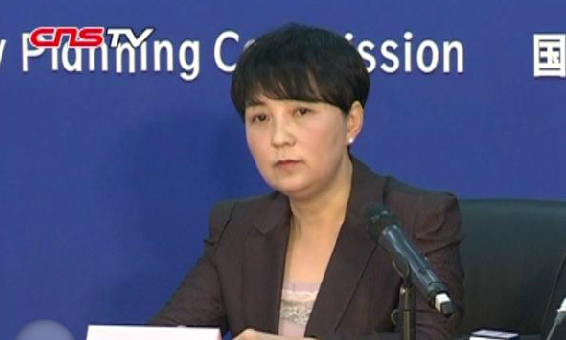
Song Shuli, spokesman for China's National Health and Family Planning Commission. (Photo/Screenshot from CNS)
(ECNS) - China has no plan to fully stop its one-child policy in May as rumors have speculated, according to Song Shuli, a spokesman for the nation's top population authority.
Song says China's huge population will continue to place pressure on resources, the environment, and economic and social development for the long term.
The National Health and Family Planning Commission will not allow couples to have two children, and their goal is to promote balanced development after policy evaluations, Song adds.
But some scholars are urging for a complete end to the one-child policy and say some concerns have been proven baseless.
In 2014, China eased its one-child policy to allow couples to have a second child if either parent is an only child. It was predicted then that hospitals would see an explosive growth in the number of pregnant women, and that competition for educational resources would also rise.
But from March 2014 to the end of 2014, only one out of the 11 million couples that meet the criteria had applied to have a second child.
Shi Renbing, the director of the Institute of Population Research at Huazhong University of Science and Technology, says the fine-tuning of population policy didn't cause the problems, and actually revealed a declining willingness among Chinese couples to have more children.
Shi says it is time for policymakers to fully allow second children.
A research report by the Chinese Academy of Social Sciences (CASS) says that China's total fertility rate (the average number of children born to each woman) is among the lowest in the world, at only 1.4, well below the replacement level of 2.1. The report calls for a quicker transition to a more relaxed policy regarding second children.
Zhang Dongwei, the director of the Institute of Population and Labor Economics of the CASS, says it's hard for the fertility rate to bounce back once it drops. That's due to reasons like economic growth, and there is a real worry that phasing out the one-child policy would not guarantee a population increase.
The government estimates that the one-child policy has prevented 400 million potential births over the past four decades. The recent policy adjustment aims to offset the effects of an aging population.
















































